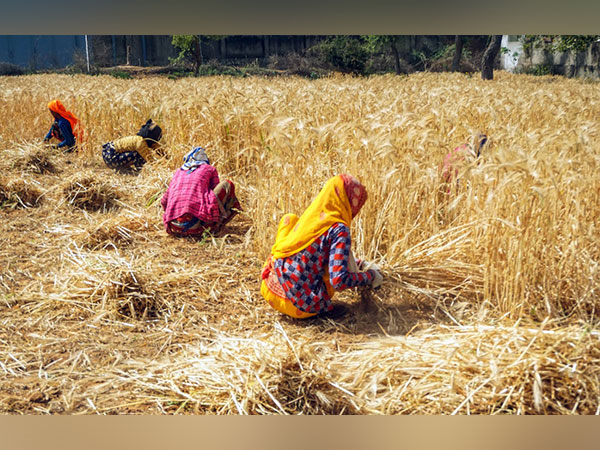
New Delhi: Wholesale prices of wheat in the domestic mandis have managed to fall from their lifetime highs and have stabilized as the central government timely brought in a slew of policy interventions on the exports of the foodgrain.
In Indore in Madhya Pradesh, which is considered one of the key mandis, wheat prices touched as high as Rs 2,400-2,500 per 100 kg, against Rs 2,000-2,1000 until the conflict in Ukraine broke out. Prices of wheat usually remain on the lower side during this time of the year as freshly harvested rabi crops make their way into the physical markets -- mandis.
Multiple rounds of heat waves in several wheat-growing regions in India ahead of the rabi harvest this year affected crop production.
The current wheat price in India is well above the Centre's assured Minimum Support price of Rs 2,015 per 100 kg, which in itself is a rare phenomenon.
As the tensions between Russia and Ukraine turned into a full-blown war, export demand for wheat got a boost, resulting in lifetime high prices of the staple foodgrain in the local mandis.
Currently, wheat is trading a little below Rs 2,400 per 100 kg in Indore. In other markets too, wheat prices have somewhat softened.
"Going by the current trend it seems the price of the foodgrain will fall towards Rs 2,300 in the coming days," said Indore-based veteran trader NK Agarwal.
To manage the overall food security of the country as well as meet the needs of the neighbouring and other vulnerable countries, India amended the export policy of wheat by putting its export under the "prohibited" category.
Global wheat prices have risen substantially in recent months as both the countries -- Ukraine and Russia -- are two major suppliers of wheat.
Wheat production in Ukraine is expected to decline 41 per cent or 13.5 million tonnes year-on-year in the 2022-23 season to around 19.5 million tonnes, as per US Department of Agriculture's recent forecast.
The Indian government did not stop at just restricting exports of wheat.
After a ban on exports of wheat grain, the Centre has now put restrictions on the exports of wheat flour (atta) exports and other related products like maida, semolina (rava / sirgi), wholemeal atta and resultant atta.
The government while banning exports of wheat had stated that the move was made with the purpose to manage the overall food security of the country as well as meeting the needs of the neighbouring and other vulnerable countries.
Lately, the government has said that there is no shortage of wheat stock in the central pool. In a written reply to Lok Sabha during the recent Parliament session, Union Agriculture Minister Narendra Singh Tomar said: "As on 01.07.2022, the actual stock of wheat is 285.10 Lakh Metric Tons (LMT) against the Buffer norm of 275.80 LMT."
In reply to another question on whether it is true that wheat procurement from farmers has fallen since there was a rise in private procurement who bought wheat directly from farmers, the minister agreed to it.
"The procurement of wheat has fallen due to higher purchase of wheat by traders as the market price of wheat had shot up due to prevailing international geopolitical situation," the Union Minister said.
"Moreover, if the farmer gets better price in comparison to MSP, they are free to sell their produce in the open market."
Wheat prices rising above MSP essentially means the Centre had to purchase lesser quantities under the price guarantee scheme as the farmers are already getting higher prices for their produce from the private buyers.